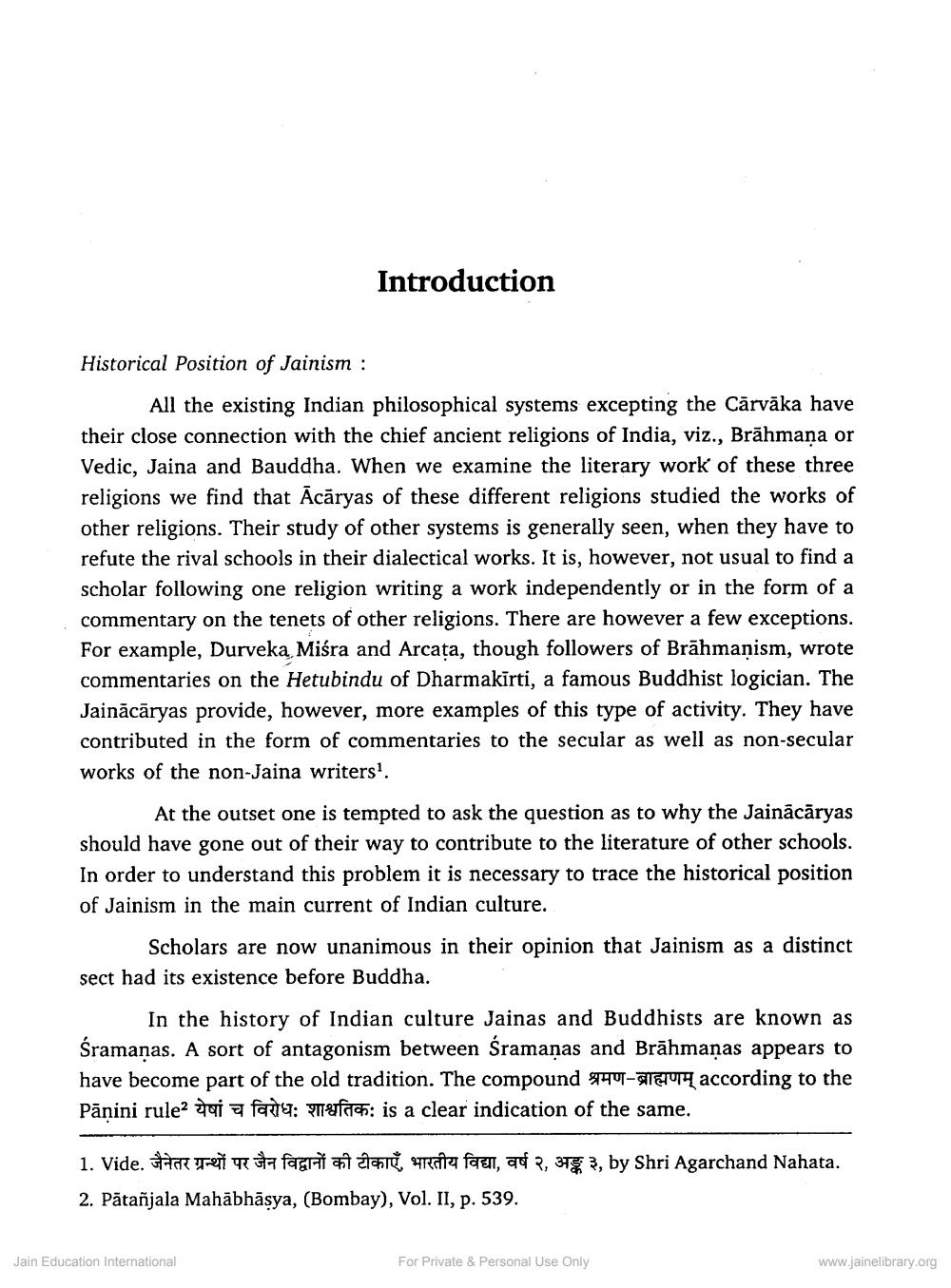________________
Introduction
Historical Position of Jainism:
All the existing Indian philosophical systems excepting the Cärväka have their close connection with the chief ancient religions of India, viz., Brāhmaṇa or Vedic, Jaina and Bauddha. When we examine the literary work of these three religions we find that Acaryas of these different religions studied the works of other religions. Their study of other systems is generally seen, when they have to refute the rival schools in their dialectical works. It is, however, not usual to find a scholar following one religion writing a work independently or in the form of a commentary on the tenets of other religions. There are however a few exceptions. For example, Durveka Miśra and Arcata, though followers of Brāhmaṇism, wrote commentaries on the Hetubindu of Dharmakirti, a famous Buddhist logician. The Jainācāryas provide, however, more examples of this type of activity. They have contributed in the form of commentaries to the secular as well as non-secular works of the non-Jaina writers1.
At the outset one is tempted to ask the question as to why the Jainācāryas should have gone out of their way to contribute to the literature of other schools. In order to understand this problem it is necessary to trace the historical position of Jainism in the main current of Indian culture.
Scholars are now unanimous in their opinion that Jainism as a distinct sect had its existence before Buddha.
In the history of Indian culture Jainas and Buddhists are known as Śramanas. A sort of antagonism between Śramanas and Brāhmaṇas appears to have become part of the old tradition. The compound - according to the Pānini rule± येषां च विरोधः शाश्वतिकः is a clear indication of the same.
1. Vide, जैनेतर ग्रन्थों पर जैन विद्वानों की टीकाएँ, भारतीय विद्या, वर्ष २, अङ्क ३ by Shri Agarchand Nahata. 2. Patanjala Mahäbhäṣya, (Bombay), Vol. II, p. 539.
Jain Education International
For Private & Personal Use Only
www.jainelibrary.org




